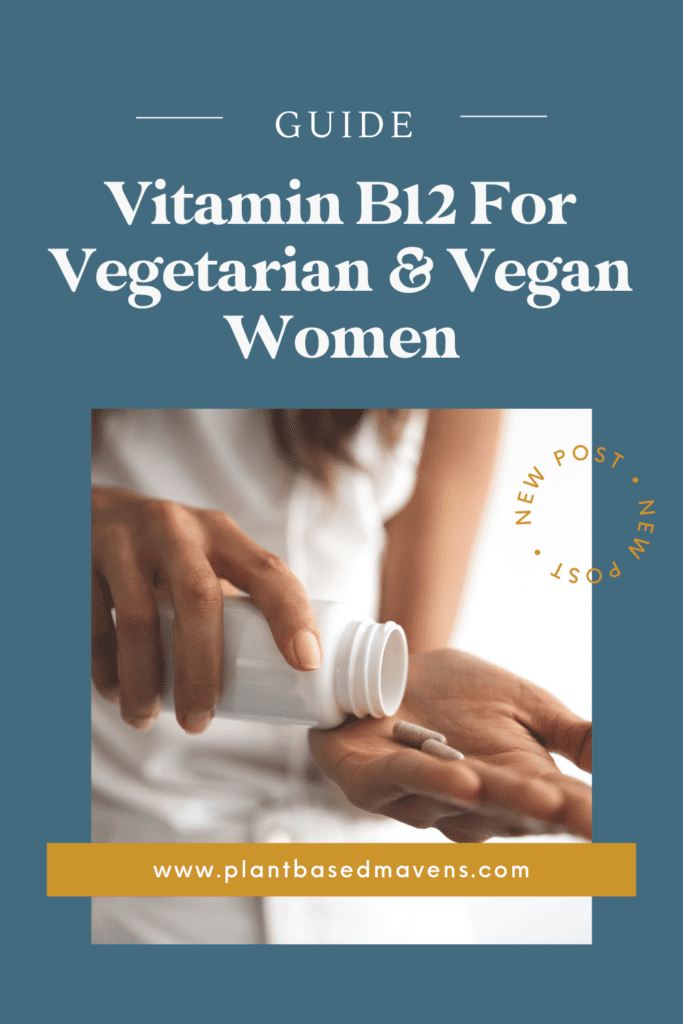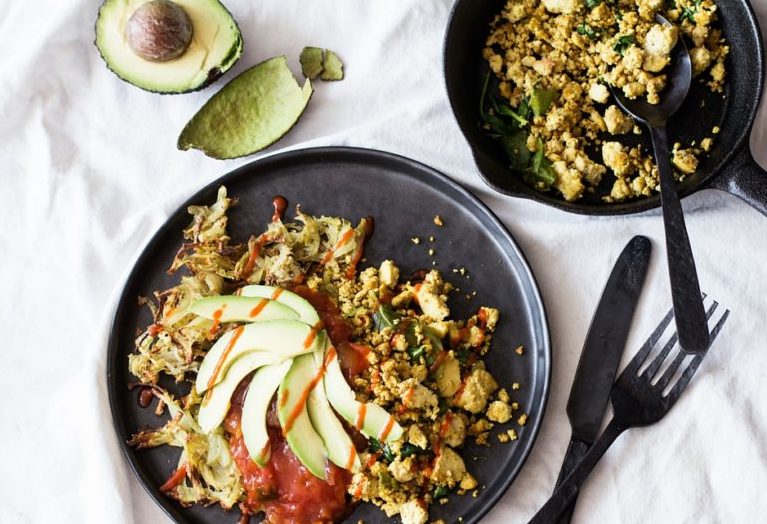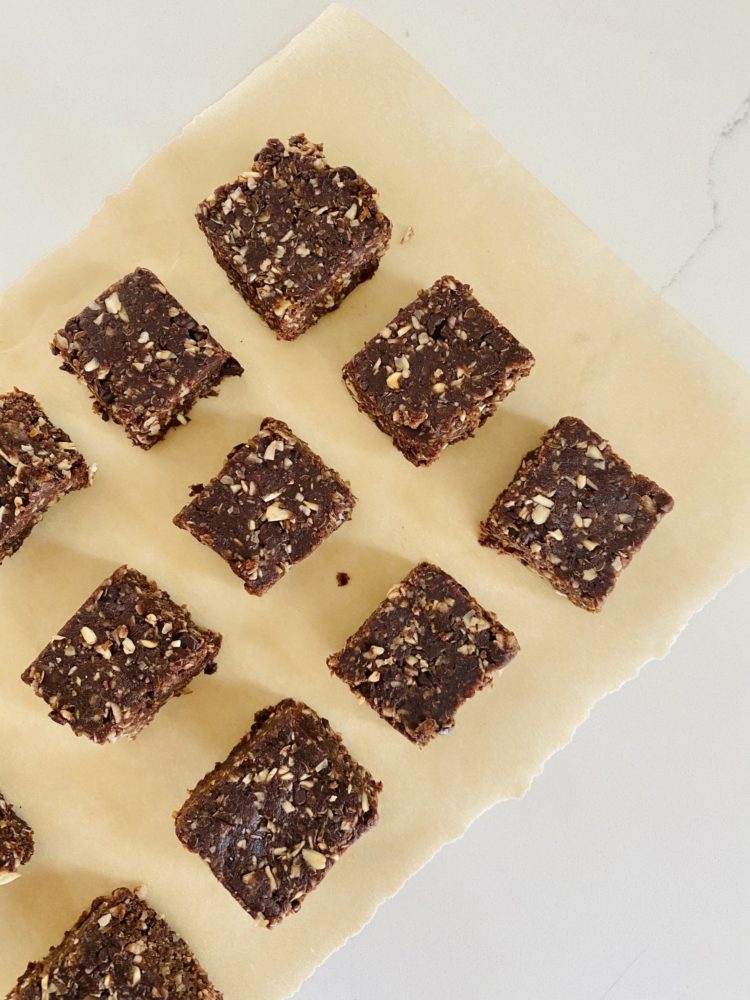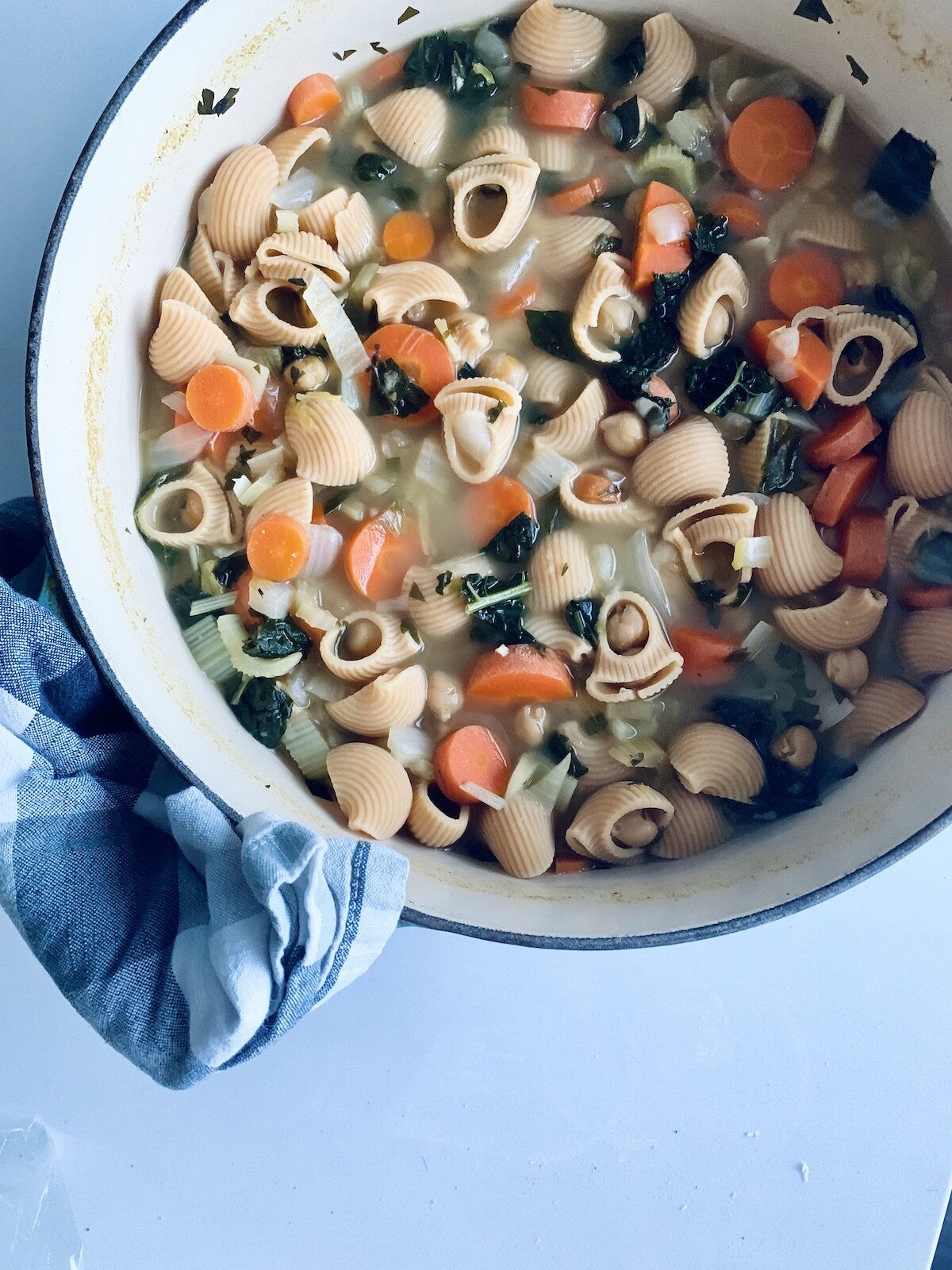When it comes to plant-based nutrition, vitamin B12 is a hot topic. Can you get it from plant-based foods? How do you make sure you’re getting enough? And what is the best B12 supplement? Here’s everything you need to know about vitamin B12 for women following vegetarian and vegan diets.

Why is vitamin B12 important?
Vitamin B12, also known as cobalamin, is a crucial water-soluble vitamin that our bodies need for various functions. It is essential for nerve function, DNA synthesis, and the production of red blood cells. Since our bodies cannot produce vitamin B12 on their own, we must obtain it through our diet. While it is primarily found in animal-based foods like meat and dairy products, there are alternative sources for people eating vegetarian or vegan diets to ensure that you get adequate vitamin B12.
How much B12 do vegan women need?
B12 is the only B vitamin that we are able to store in the body, indicating that we’ve evolved to eat semi-infrequent sources. Because we can store it, you’ll see B12 supplements that you can take weekly (instead of daily) to top off stores. Below is a look at the recommendations for B12 intake for women. Supplement dosages are much higher than recommended daily needs to account for the fact that we only absorb a small amount of the supplement. There are not separate recommendations for vegans and vegetarians.
Vitamin B12 Needs For Women
Recommended Dietary Allowances (RDAs)

Vegan B12 Deficiency Symptoms
People eating completely vegan diets are definitely at higher risk of deficiency. The best way to know if you are at risk of B12 deficiency is to get your levels tested regularly. Not getting enough B12 puts you at risk for depression, heart disease, and memory loss. B12 deficiency is very dangerous and can result in irreversible neurological damage and cognitive issues before it’s even detected. A consistent source of B12 is a MUST for every woman eating a completely plant-based diet!
B12 deficiency symptoms include:
- Fatigue, weakness, lack of energy
- Heart palpitations
- Pale skin
- Weight loss
- Loss of appetite
- Infertility
- Numbness or tingling in the hands and feet
- Problems with balance
- Depression
- Confusion
- Memory difficulties
- Dementia
- Sore mouth or tongue
Can you get B12 from plants?
The short answer is no. There are claims that some unfortified plant-based foods like fermented foods, spirulina, chlorella, mushrooms, and sea vegetables contain B12, but these are not reliable sources. There are many molecules that are similar to B12, called B12 analogues, that are inactive and provide no benefit to humans. The
The current methods we have available for measuring B12 content in foods cannot distinguish between true vitamin B12 and these inactive analogues, so claims of supposed “naturally-occurring” B12 in foods may be mistaking the analogues for B12.
BTW, you might also like The Complete Guide To Plant-based Benefits For Women and Protein and Women’s Health.
Best Sources of Vitamin B12 For Vegetarians and Vegans
Vitamin B12 is one of the only vitamins (along with vitamin D) that we cannot get enough of from plants. B12 is made from microorganisms, and it is thought that we used to be able to get enough from the dirt, soil, and microscopic “creatures” living on our unwashed wild plants. Since plants are no longer a reliable way to meet B12 needs, we either need to diligently eat enough B12-fortified foods or take a B12 supplement.
Some breakfast cereals, plant-based milks, and nutritional yeasts are fortified with B12. Be sure to check labels because not all brands are fortified. If you decide to rely on nutritional yeast as a B12 source, look for the VSF symbol on the label which stands for Vegetarian Supported Formula and indicates fortification. If you want to get your B12 from fortified foods, you must eat multiple servings every day to meet needs.
I find that a B12 supplement is the easiest way to meet needs. Supplements are inexpensive and safe, so the only barrier is remembering to take them! Look for a cyanocobalamin form that’s either liquid or sublingual (absorbed under the tongue). You will also see methylcobalamin, but we just don’t have enough evidence to support the effectiveness of this form of B12.
Top Vitamin B12 Vegan Sources
Although a B12 supplement is the most reliable way to meet needs, certain vegan foods are fortified with vitamin B12.
Fortified Nutritional Yeast
Some nutritional yeast brands are fortified with Vitamin B12. It will vary by brand, but one tablespoon provides roughly 2.4 mcg of vitamin B12. Look for the VSF symbol on the label which stands for Vegetarian Supported Formula and indicates fortification. If you are new to nutritional yeast, try it in this delicious Vegan Cheesy Sauce.
Fortified Breakfast Cereals
Some breakfast cereals are fortified with vitamin B12. Again, be sure to check labels!
Fortified Non-Dairy Milk
Certain brands of plant milks are also fortified with vitamin B12. Look for fortified plant-based milks and check labels for specific amounts and serving sizes.
Fortified Meat Alternatives
Certain vitamin-fortified tofu and veggie burger products are fortified with B12. In my experience, this is not standard or super common. So, be sure to check labels.
B12 Supplement
Supplementation is, of course, the most reliable way for plant-based women to meet their needs. They are inexpensive and effective! Read on to learn more about choosing the best vitamin B12 supplements.
Vitamin B12 Supplements For Vegans
Choosing a vitamin B12 supplement involves a few considerations. B12 supplements come in different forms with different dosages and methods of taking them (liquid, chewable, sublingual, etc.).
How much b12 should a vegan take?
To meet the recommended daily requirements for vitamin B12 intake, you must supplement with a much higher dosage to get an adequate amount. We can only absorb small amounts at a time – that’s why supplement dosages are so much higher than the recommended intake. The recommended daily intake of vitamin B12 for adults is 2.4 micrograms. However, experts generally recommend supplementing with about 2,000µg 1-2 times a week or at least 25µg daily.
To customize your B12 intake, get your levels tested and consult with a knowledgeable healthcare professional or registered dietitian to help determine your right dosage for optimal health.
Cyanocobalamin vs. Methylcobalamin
You’ll find B12 available in two different forms in supplements: cyanocobalamin and methylcobalamin. Cyanocobalamin is the most common form found in supplements and is considered more stable and typically cheaper. The body needs to convert cyanocobalamin into the active forms, such as methylcobalamin, before it can be utilized. On the other hand, methylcobalamin is already in the active form and may be more easily absorbed and utilized by the body. The research is mixed regarding which form is better, so the choice is up to you. Both forms have been shown to effectively raise levels of vitamin B12.
Best Vegan B12 Supplements
The best B12 supplement is going to be different for everyone. After you’ve chosen the form, you then need to choose whether you want to take a daily supplement or weekly supplement. It’s advised that pregnant people opt for a daily supplement to ensure that baby is getting a steady amount. (Read more about pregnancy nutrition needs here!) Then, you need to choose the form you prefer. Supplements come in chewable, liquid, sublingual, and spray forms.
How To Get B12 on a Plant-based Diet – Final Tips:
- Regularly eat fortified foods: Two servings per day, 2 to 3.5 µg each
- Nutritional yeast, plant-based milks, and cereals are commonly fortified foods. Check labels! Not all brands are fortified, and the amount of fortification varies.
- Take a B12 supplement: 2,000µg 1-2 times a week or at least 25µg daily
BTW, you might also like The Complete Guide To Plant-based Benefits For Women and Protein and Women’s Health.
Need some easy meal inspiration?
Grab my free 62 Plant-based Meal Ideas guide filled with easy ideas for breakfast, lunch, dinner, and snacks.


